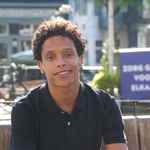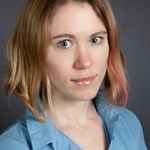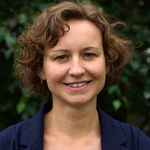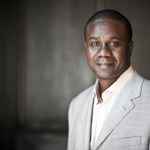Four new courses related to diversity offered from 2021-2022
18 February 2021

The new courses give the faculty the opportunity to devote more attention to diversity. ‘The topics of the winning courses are very diverse: from Gender, Race & Power to Sugar and the World. I think almost every student will be able to find a course that interests them,’ says Frauke Vandoren, student member of the Programme Committee of the ACASA Master’s programmes, who was invited to cast her vote. Nelson Addo, student member of the Faculty Board, who also voted, is also happy with the winning courses: ‘The combination of the courses which ended up being selected could not have been a better one, as far as I am concerned. This selection not only investigates the continuation of our imperialist past within our present-day societies, but also looks at notions of modern globalisation, and the parallels between them.’

I feel like the winning courses devote attention to themes that are underrepresented within our faculty.Nelson Addo
The courses emerged victorious from a voting round in which both programme directors and the above-mentioned student members allotted points. In total, ten propositions for Bachelor’s courses and six for Master’s courses were entered into the call. Among others, the voting student members thought it was important that the courses were accessible to as wide an audience as possible, Vandoren and Addo explain. The four winning courses will, for instance, all be taught in English. ‘This way, both Dutch students as well as international students will have the opportunity to take one of the new diversity courses,’ says Vandoren.
This is an important step towards a more inclusive curriculum.Frauke Vandoren
Addo writes that he also took into account whether or not the courses would be a true addition to the curriculum. ‘This is what excites me the most: I feel like the winning courses devote attention to themes and perspectives that have thus far been insufficiently treated and are underrepresented within our faculty.’ Vandoren agrees: ‘This is an important step towards a more inclusive curriculum.’
Bachelor's course ‘Netherlands in the World’
‘In this course, students will study how two global questions impact Dutch society: decolonisation and the climate crisis. This is done from the perspective of diversity and inclusivity. Every question is first approached from a cultural-historical angle and subsequently analysed from within the contemporary debate,’ says Marrigje Paijmans, who designed this course together with Jan Rock. This way, the Dutch society and culture is shown to be divers to a tee.

We are organising a reading club, a debate and an excursion to the exhibition on slavery at the Rijksmuseum.Marrigje Paijmans
Students will not only learn to tackle questions from their own expertise and in collaboration with other areas of expertise, but will also develop knowledge regarding and sensitivity for the visions and approaches of others, Paijmans explains. What makes this course especially interesting are the activities the students will be undertaking, Paijmans says. ‘We are organising a reading club, a debate and an excursion to the exhibition on slavery at the Rijksmuseum. We will also be inviting curators and other experts from outside of the UvA to give talks.’
The lecturers came up with the idea for this course whilst designing a new minor in Dutch Studies, for which this course will be the grande finale, says Paijmans. The course is furthermore offered as a faculty-wide elective and will be open to all students.
Bachelor's course ‘Decolonising Media Studies – From Theory to Practice’
The course Decolonising Media Studies – From Theory to Practice will take students out of their cultural bubbles by letting them undertake projects together with partner institutions and communities in the city that devote attention to matters of diversity, such as the Black Archives, Imagine IC Bijlmer, the Tropenmuseum, Framer Framed, Amsterdam Museum, and the Chinese Women’s foundation Ho-Yin. Lecturer Leonie Schmidt explains that the idea for this course was triggered by the presence of two related problems in the rapidly growing and internationalising Media Studies programmes. ‘On the one hand, the diverse student population feels alienated from the almost exclusively “western” programme, and on the other hand, we observe that students mainly choose to stay within their own (cultural/student) bubbles.’

I think students will enjoy being able to directly apply their knowledge in a practical setting and that they will discover the value of their skills.Leonie Schmidt
This leads to a lack of cohesiveness between the students’ academic work and their place in or experience with society, Schmidt says: students do not properly understand their societal value and do not feel connected with the city. ‘This course tackles these issues and makes students and societal partners a central part of the solution. I think students will enjoy being able to directly apply their knowledge in a practical setting and that they will discover the value of their skills.’
Decolonising Media Studies – From Theory to Practice will be taught as an elective within the Media Studies Bachelor’s programme.
Master's course ‘Gender, Race & Power in EUropean Security’
The course Gender, Race & Power in EUropean Security plays into the increasing engagement of scholars of the EU’s external policies with feminist and postcolonial approaches. Lecturer Hanna Muehlenhoff explains that students will investigate how European security discourses and practices are shaped by gendered and racialised logics and how their knowledge production is rooted in colonial histories and practices. Feminist and postcolonial approaches pose essential questions regarding the type of security that is produced by the EU: who does the EU care for, and how?

While teaching other courses, I noticed that students are very interested in these debates, so I want to create more space in our programme to engage with these matters.Hanna Muehlenhoff
Muehlenhoff: ‘At the same time, there is a growing academic literature on questions of coloniality and gender in European Studies, in which migration and security are also studied. While teaching other courses, I noticed that students are very interested in these debates, so I want to create more space in our programme to engage with these matters. The course will teach students to see the connections between, for example, EU security and defence policy and logics of race and gender, which are often invisible in our study of the EU and Europe.’
The course is offered as an elective open to all Master’s students of our faculty. It will furthermore be embedded within the European Policy track of the European Studies Master’s programme as a set elective.
Master's course ‘Sugar and the world: how sweets impact globalization and diversity’
Sugar and the world: how sweets impact globalization and diversity is a course that will provide students with a multidisciplinary perspective on questions related to inclusiveness in multicultural societies, says lecturer Enoch Aboh. ‘By thinking “globally” about a specific commodity, and how its production, trade, and consumption structure the world we live in, we can investigate the socio-cultural and economic differences and political divisions that threaten our societies. The history of sugar and its impact on the world since the seventeenth century make it a perfect starting point with regard to this topic.’

As most daily commodities come from abroad, this course will show the global side of diversity and broaden the participants’ perspectives.Enoch Aboh
Aboh explains that this course will take the theme of diversity out of the abstract sphere by relating it to an everyday commodity. This way, it is immediately made relevant to the students. ‘As most daily commodities come from abroad, where their production impacts the native communities, this course will show the global side of diversity and broaden the participants’ perspectives. Each student will be able to share their own experiences and thoughts.’
The course will feature as an elective open to all Master’s students.